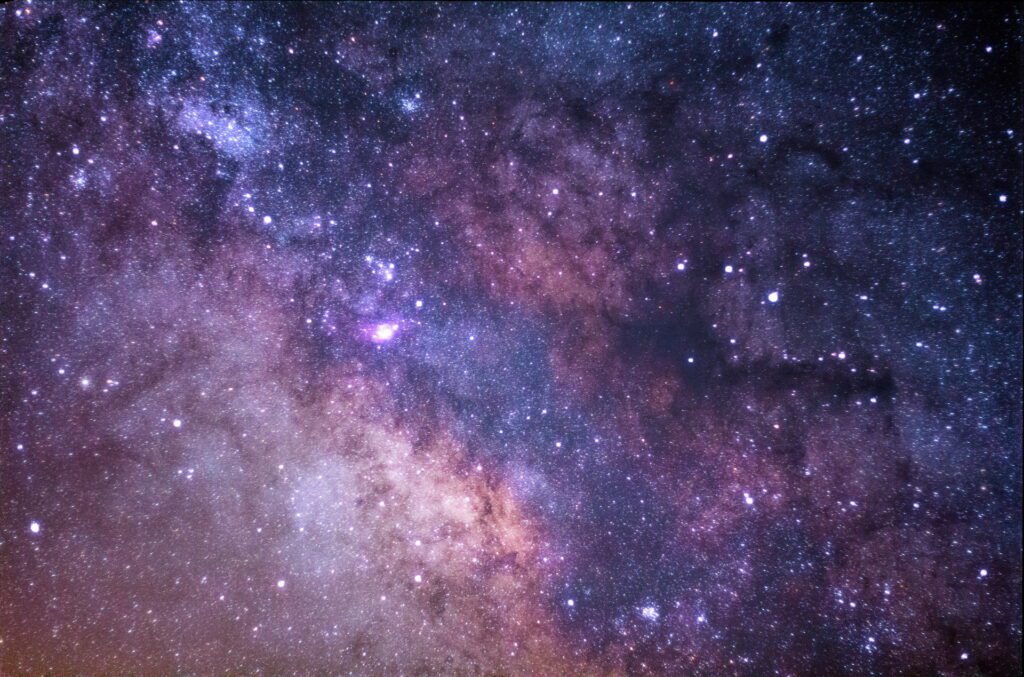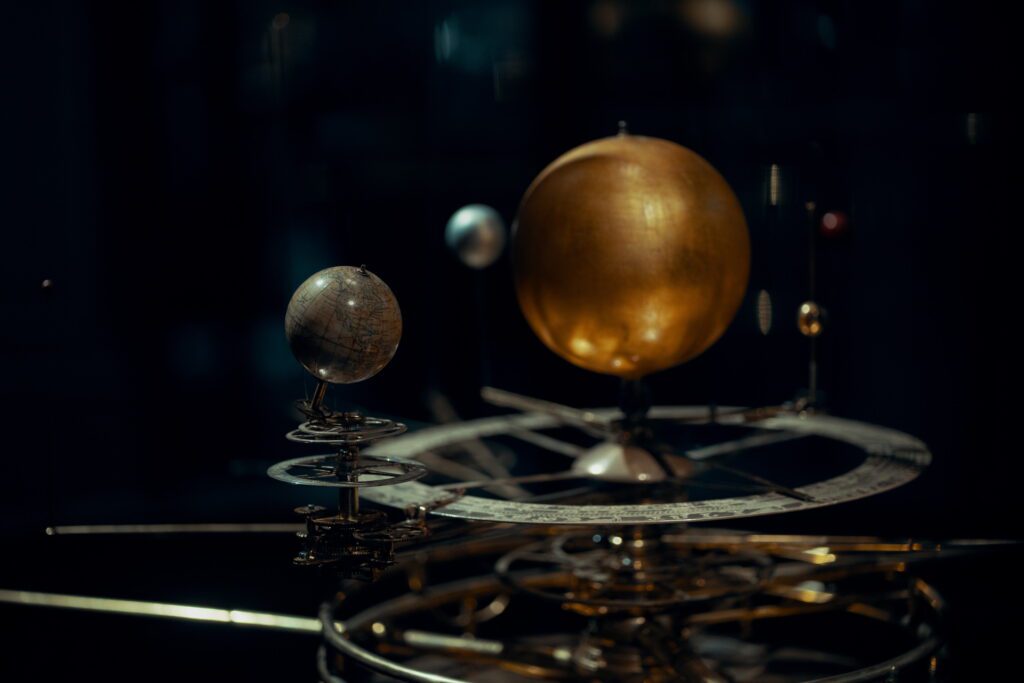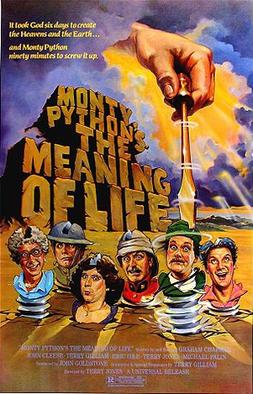In the ninth (and penultimate) part of the Get to know God series, we’re looking at how God is the maker and preserver of all things. This means that God made everything, but he also ‘preserves’ everything – he keeps it going day-by-day, moment by moment. If you’ve been following the series, you’ll know the drill by now: we’ll start out looking at what the Bible says about it, then we’ll think about how it applies to us today.
What the Bible says
In the beginning God created the heavens and the earth.
Genesis 1:1
Genesis 1:1 is one of the most famous verses in the Bible. So famous, in fact, that we probably don’t give it the attention that it deserves. We often skip over it. But let’s spend a bit of time thinking about it. What do these few words say about God’s creation?
God created everything from nothing
Traditionally Christians have said that God created the world ex nihilo – from nothing. He didn’t have anything to work with. There’s a joke which goes something like this:
The tale starts with a group of scientists who are fed up with the literal interpretation of Genesis and the creation story. So the scientists send an emissary to talk with God about the whole thing. They plan to entrap God by having a “human- making contest.” The scientists think that they have figured it all out and that they can create a human being faster and better than God can. God says to the scientist, “You go first” and the scientist bends over to scoop up some dirt. At this point God interjects, “Oh no, that’s my dirt, you get your own dirt.”
Source
I think it’s hard for us human beings to imagine nothing. I mean, no universe, no material of any kind, just… nothing. What’s interesting to me is the way this seems to tie in with science. When scientists first proposed the idea of the big bang, some people were worried about it because it confirmed what the Bible had always said – that the universe had a beginning. It’s interesting here that science and the Bible are in complete agreement. People sometimes talk about science and Christianity as if they are enemies, but actually they are friends.
God is separate from creation
We’ve talked a little bit about this before (in God is everywhere), but it’s something fundamental which needs repeating. God is not a being within the universe, or equal to the universe. God is bigger than the universe, not a part of it. He created and sustains the universe. This is what Revelation 4:11 says:
‘You are worthy, our Lord and God, to receive glory and honour and power, for you created all things, and by your will they were created and have their being.’
The universe exists because of God’s will. It’s important to remember that we exist as part of God’s universe. God doesn’t exist to serve us, we exist to serve him. We don’t exist to serve our own will, we exist to serve God’s will. We’ll think more about that later.
God created everything that exists

Another important thing to understand is that God created everything that exists. Genesis 1:1 says ‘the heavens and the earth’ – so God didn’t make simply the things in this world, but he made the stars and planets too. He created the solar system, the galaxies, the billions and billions of stars… God made all of these things too.
This is how Douglas Adams put it in the Hitchhiker’s Guide to the Galaxy:
“Space,” it says, “is big. Really big. You just won’t believe how vastly hugely mindboggingly big it is. I mean you may think it’s a long way down the road to the chemist, but that’s just peanuts to space. Listen …” and so on.
Think about how vast the universe is – and then think about what that says about the God who made it. If the universe is big, God is even bigger!
The 39 Articles (which we looked at in the introduction, if you don’t remember) states that God made everything “visible and invisible”. What does that mean? Simply that there is a spiritual realm as well as a physical realm. Spiritual beings exist (as we thought about in the God is everywhere session) – and they’re just as real as you and me. The point is that God made them, too.
God is the only being who was never created. He simply exists – he’s always existed, and he will always exist.
The universe displays God’s splendour
The things that God has created are supposed to display God’s glory. For example, this is how Psalm 19 begins:
The heavens declare the glory of God; the skies proclaim the work of his hands. Day after day they pour forth speech; night after night they reveal knowledge.
It says that the universe “speaks”, in a sense: it speaks of the glory of God. We are supposed to be able to look at the universe and see the glory and power of God.
This is how great art work is supposed to be. How often, for example, do you hear of a great artist who poured their heart and soul into a particular piece? The artwork bears witness to the artist. The universe, the great masterpiece, reflects the greatness and glory of the great master-artist.
The universe isn’t clockwork

Sometimes people have an idea that the universe is a bit like clockwork. God simply set up a universe with particular laws, and then ignited the big bang. It’s a bit like God created a machine and then simply wound it up and let it go: the universe now runs itself.
The Bible’s view of God is very different: God isn’t distant from creation, but upholds it and sustains it at every moment. Psalm 104 speaks of God’s involvement in every aspect of creation. Let me quote a few verses:
He makes springs pour water into the ravines;
it flows between the mountains. (v10)
He makes grass grow for the cattle,
and plants for people to cultivate -
bringing forth food from the earth (v14)
You bring darkness, it becomes night,
and all the beasts of the forest prowl (v20)
All creatures look to you
to give them their food at the proper time. (v27)

The picture here is of a universe where God is intimately involved, moment by moment. God upholds the universe every second of every day – he never has a day off or delegates to someone else! The motion of the planets, the seasons, night and day – everything only exists because God wills it to be that way. God causes plants to grow to feed the animals and to feed us.
In fact, God’s involvement in creation is exactly what gave the early scientists confidence to investigate the world: they believed that God had made an ordered world, so it was possible to discover God’s order in creation. The universe is ordered and rational because it reflects God himself. If you try to eliminate God from creation, you end up cutting out the only reason there is to believe the universe is ordered and rational.
What does it mean for us?
Clearly there’s a lot to say about God being the creator! There’s a lot more we could say. But let’s turn now to think about what it means for us.
We find our purpose and identity in God
God made everything – including human beings. In fact, human beings have a special place in God’s creation:
So God created mankind in his own image,
Genesis 1:27
in the image of God he created them;
male and female he created them.

Human beings are the only creatures made “in the image of God”. What does it mean to be made in God’s image? I once heard some background information which helped put this into context. In ancient times, there was obviously no TV or any kind of printed media. If you were a king in those days, you faced a problem: people might forget that you were the king – after all, they might not ever see you! So ancient kings placed statues (images) of themselves around to remind people who was in charge.
What does that mean for us being made in God’s image? We are here as God’s vice-regents. That is, God has give us the privilege and responsibility of ruling over creation for him and with him. We represent God’s rule on earth.
Obviously there’s a lot you could say about that! But one big thing to understand is to do with the Meaning of Life. And I’m not talking about the Monty Python film!
The meaning of our lives is not found in ourselves. It’s not found in our hobbies, or our families, or our work. Those things are all important. But the true meaning of our life is found in God. He has put us here for a reason, and given us a job to do.
He has also made us in a particular way – our gifts, talents, experiences, and so on. It’s all for a reason. We discover that reason when we submit ourselves to God, when we allow him to use us in the way that he chooses. At the end of the day, only God can give our lives meaning. We can’t give it to ourselves, but our creator can.
God can provide for us

Are not two sparrows sold for a penny? Yet not one of them will fall to the ground outside your Father’s care. And even the very hairs of your head are all numbered. So don’t be afraid; you are worth more than many sparrows.
Matthew 10:29-31
Jesus said here that a sparrow cannot fall to the ground outside of God’s care. If God cares about a sparrow – how much more does he care about people? Jesus said even the hairs on our head are all numbered! God made every single one. We are worth more than many sparrows.
In the first half we thought about how God didn’t just create the universe but sustains it every moment. God cares for and feeds all of creation. Here, Jesus says God doesn’t just feed us in a general sense: he cares for us, and will look after us.
This has been true in my own life: even when I’ve gone through difficult times, e.g. been out of work and not earning money, God has looked after me. I can testify to the truth of this, that when we ask God for the things that we need, he will provide. This doesn’t mean life is a bed of roses, but I can say that I’ve always had the things that I need.
There is no excuse to not believe
The final thing we’ll think about in this session is that there is no excuse to not believe in God. Romans 1:20 says, “since the creation of the world God’s invisible qualities – his eternal power and divine nature – have been clearly seen, being understood from what has been made, so that people are without excuse.” Paul says here that God’s power and divine nature are clearly seen in creation.
As we thought about in the first half, the universe displays something of God’s power and glory. Paul says that no-one can look at the universe and say “God doesn’t exist”. Everything in the universe points to God the creator.
This doesn’t mean that there aren’t good questions to be asked (which is why I started up the Your questions answered series). And we all have doubts from time to time. But, at the end of the day, we should be able to look at the amazing universe that God has created and see his fingerprints all over it.
Further Reading
- Rebuilding the Matrix by Denis Alexander. Although this book is a few years old, it really helped me when I first read it to understand that science came from Christianity, and that they were not in conflict.
- Science and Faith are Not Enemies – an interview with John Lennox – emeritus professor of mathematics at Oxford University.
- God made everything – a great fun song for children.
- Also Birds were made for flying – another great song for kids, this time thinking about what we were made for.





